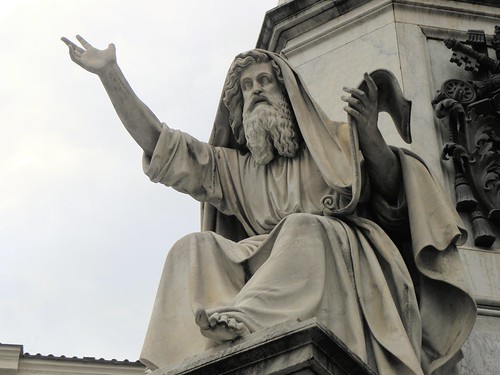“We
pledge to act in allegiance to God alone, and to resist injustice with
goodness”
- I will be subject to civil authorities, unless they command actions which are unjust or protect injustice, or if they violate common human dignity.
This is a slippery vow to reflect on.
Not being a political theologian, I danced around having to write something for
this. I come from a Christian religious tradition historically wary of close Christian
relationships to—much less involvement in—the civil governing authorities (enigmatically
labeled “the State” in much contemporary theologizing).
As a called-out people (dwelling in the United
States of America) commissioned by God in Jesus to self-emptying, nonviolent service
to the least-of-these, how do we faithfully relate to civil systems and laws
and even individual leaders? Especially ones who demand the right of our country
to assassinate its own citizens abroad, that propagate poverty among already-disadvantaged
economic classes, that create giant profit out of incarcerating (and not
rehabilitating) a massive prison population, that call for enforced racial
profiling against our darker-skinned migrant brothers and sisters? “Be subject to governing authorities.” Really,
Paul? “Accept the authority of every human institution, whether of the emperor
as supreme, or of governors.” That’s not what I wanted to hear, Peter!
On days when all I see of “the State” is injustice and violence against fellow humans, I loathe Paul and Peter for contributing to a US American Christian culture of subservient civil religion. But, dear Lord, let me not miss the value in the exhortations to “be subject, to accept the authority” (not “blindly obey,” nor “approve of,” and most definitely not “worship” and "pledge allegiance to," mind you!) In reality, the first part of this vow today is something we do every day when we drive the correct way down the street, pay the bill on our groceries without theft, avoid gender discrimination as we peruse a new set of job applicants, or ensuring our church or non-profit finances are in compliance with our taxation exemptions. “I will be subject to civil authorities, unless they command actions which are unjust or protect injustice, or if they violate common human dignity.”
On days when all I see of “the State” is injustice and violence against fellow humans, I loathe Paul and Peter for contributing to a US American Christian culture of subservient civil religion. But, dear Lord, let me not miss the value in the exhortations to “be subject, to accept the authority” (not “blindly obey,” nor “approve of,” and most definitely not “worship” and "pledge allegiance to," mind you!) In reality, the first part of this vow today is something we do every day when we drive the correct way down the street, pay the bill on our groceries without theft, avoid gender discrimination as we peruse a new set of job applicants, or ensuring our church or non-profit finances are in compliance with our taxation exemptions. “I will be subject to civil authorities, unless they command actions which are unjust or protect injustice, or if they violate common human dignity.”
As a contemporary Anabaptist Christian
oriented toward God’s larger justice, I often forget that a significant portion
of the laws and actions by civil authorities in my country of residence are worth
being subject to—and also worth disobeying
when they foist injustice and violence or demand we grant Lordship to
something/one other than Jesus Christ.
To defend Paul and Peter for one moment
before we close, let us not mistake their words for universal sanction of all civic
authority nor as a theological theory of the providential purposes of secular
government and legal order, nor as a model for proper spheres of “church and
state.” Rather, these apostles are concerned that the church maintains its
proper focus: “Owe no one [including Ceasar and his laws] anything except to love one another, for the one who loves
another has fulfilled the law.” “Honor
everyone” and, “Do not be overcome by evil, but overcome evil with good!”
 |
| by Icarus Kuwait via Flickr |
Peter and Paul call us to a different
kind of subjection to the civil authorities and a very different kind of revolution against their injustice. As people
of the church, we are called to messiah-shaped, cruciform and resurrected “engagement
in history, against history, for the sake of history.”* May it be so in us
today!
[*From
Doug Harink’s 1 & 2 Peter volume of the Brazos Theological Commentary on
the Bible, p. 79, emphases his. For more, check out pages 75-80 or the whole
section on 1 Peter 2.]
Options
For Reflection and Action:
(1) Read 1 Peter 2:13-17. Consider especially: “Live as free people [which comes entirely from God, not the governing authorities!], but don’t use that freedom as a pretext for evil. By doing right, silence the ignorance of the foolish.”
- What freedoms do you have that ostensibly come from the government? What are the freedoms you have that cannot ultimately be granted nor taken away by the civil authorities and laws?
- What American freedoms are you engaging that have become a “pretext for evil”?
- In what ways are you using your freedoms (both the ones through Jesus and through human laws) for “doing right?”
(2) Read Romans 12:17-13:10.
- Reflect on the difference between “be subject to” (subordination: ordering yourself under) rather than “obey” (subservience: abject submissiveness).
- Today, what are ways you can “order yourself under” those in authority over you (showing hospitality to the “enemy” and thus “heaping burning coals on their head”)?
 |
| The Prophet Jeremiah by Ian Scott via Flickr |
(3) Contrast the “being subject to the authorities” in 1 Peter and Romans with the prophet’s critique against the authorities in Jeremiah 39:1-6++
- What are ways this month you need to “stand up” and tell the authorities of the justice God desires?
- In the midst of your critique, how will you and your church “seek the well-being of your city?” (Jeremiah 29:4-7)
++ [In the face of the oppression, bloodshed and idolatry by the ruling powers of the nation of Israel—the kings, officials and priests— Jeremiah stands up to protest with God’s words. No longer does he consider himself subject to the civic-religious authorities because God has called him to “stand up and tell them everything that I have commanded you. Do not break down before them.” (Jer. 1:17)]
Prayer Focus
Governing God, you alone give us freedom,
yet your apostles called us to do good to authorities
who can neither give nor take away our self-emptying freedom.
Give us the wisdom to sub-ordinate ourselves faithfully
to human rulers and laws,
showing honor and respect when it is due,
offering prophetic critique when violence & injustice comes,
but always "seeking their well-being."
Victorious Jesus, thank you for your Spirit enabling us
to love one another, overcoming evil with good! Amen!

No comments:
Post a Comment
If this post has sparked new ideas, questions or commitments--or refreshed old ones--feel free to comment for the good of the community.